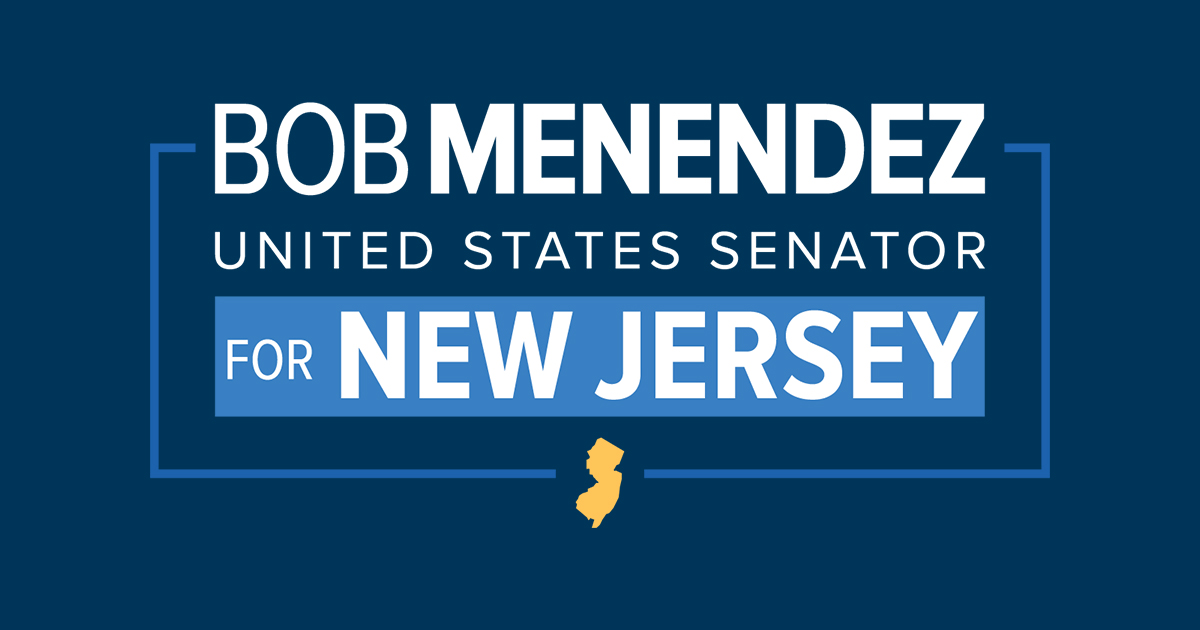Source: United States Senator for New Jersey Bob Menendez
WASHINGTON, D.C. – U.S. Senator Bob Menendez (D-N.J.), a senior member of the Senate Finance Committee, today questioned Daniel Werfel, the Biden Administration’s nominee to lead the Internal Revenue Service (IRS), about his plans for the agency if confirmed as the next IRS Commissioner. The Senator focused on how Mr. Werfel will build on recent improvements at the agency to reduce the backlog of unprocessed returns, maintain current level of calls answered at nearly 90% throughout this tax filing season compared to just 13% at the beginning of 2022, and continue to improve overall customer service operations.
These positive developments at the IRS are a result of Sen. Menendez’ oversight efforts throughout last year and thanks to the funding secured in the Inflation Reduction Act to spur operational improvements and modernize the agency.
“Mr. Werfel, over the past year, I have led over eight letters, many of them with a fair number of my colleagues, to the IRS about a range of customer service issues impacting taxpayers. I’m pleased that the IRS has implemented some of the measures that I’ve called for, like the expansion of overtime opportunities for IRS employees and creating surge teams, which have been critical in reducing pandemic-related tax return and correspondence backlogs,” said Sen. Menendez. “But as the new filing season begins, the IRS simply needs to do better […] At the end of the day, the IRS is in the customer service business and needs to get back to basics – answering the phones, processing tax returns, and processing timely refunds.”
[embedded content]
Sen. Menendez echoed questions to Mr. Werfel from several of his colleagues about the need for equity as a key pillar of effective tax administration, citing a report from Stanford University and the Department of Treasury, which found that the IRS is three times as likely to audit Black taxpayers.
“The IRS doesn’t collect data on race or ethnicity, but [there are glaring] disparities attributed to how the IRS computer algorithms that select the returns for audit. At the same time, the IRS is known for low audit rates of high-income taxpayers and large businesses, which has led to an estimated gap in tax collections of nearly $500 billion,” added Sen. Menendez.
Mr. Werfel committed to work with Sen. Menendez and the Finance Committee to ensure the agency works to address the root cause of this racial disparity in the administration of tax laws and to modernize the agency, including the implementation of scanning technology to process returns as soon as the 2023 filling season.
“Taxpayers have the right to receive prompt refunds regardless of whether they file online or by paper. It’s unacceptable that 13 million taxpayers who filed via paper waited an average of 6 months or longer to receive their refunds. As you can imagine, these delays cause taxpayers to feel confusion, frustration, and experience financial hardship—all of which are preventable,” concluded Sen. Menendez. “…Scanning has been used by 17 state tax agencies for over 20 years. The benefits are clear and I’m pleased that Secretary Yellen has promised to move forward with plans to automate the scanning of individual paper returns. Do you commit the IRS to implementing scanning technology for all individual paper returns by the 2024 filing season?”
Throughout all of last year, Sen. Menendez led oversight efforts to ensure the IRS would address persistent customer service issues and extensive processing backlogs plaguing the agency. Last August, the Senator led more than 90 Senate and House colleagues urging then-IRS Commissioner Charles Rettig to eliminate the ongoing, unprecedented processing delays, extend the suspension of automated notices and collections, and continue making maximum use of overtime and surge teams. Last summer, the Senator led a group of colleagues calling on the agency to extend the filing deadline for filers with individual taxpayer identification numbers (ITIN) impacted by massive processing delays at the agency and who were as a result unable to file for the enhanced child tax credit (CTC).
Last spring during a Finance Committee Oversight hearing, Sen. Menendez questioned then-IRS Commissioner Rettig about two of the primary issues contributing to the massive backlogs at the IRS: issues with hiring workers to answer the phones and lack of technology that can allow workers to process returns faster. Before this hearing in March 2022,Sen. Menendez led more than 100 Senate and House colleagues in a bicameral, bipartisan effort to press then-Commissioner Rettig for the IRS’s lack of a comprehensive plan to remedy the numerous problems affecting taxpayers during last year’s tax filing season.
The Senator also led another bicameral effort with 45 colleagues last February that ultimately resulted in the IRS announcing the formation of a second surge team to help address the massive backlogs and continue to improve customer service. In late January 2022, Sens. Menendez led more than 200 colleagues in a bipartisan and bicameral letter calling on the IRS to provide penalty relief for taxpayers – spurring the agency to temporarily halt some, but not all of the penalty notifications while the agency worked to address its persistent processing and customer service issues.
###
